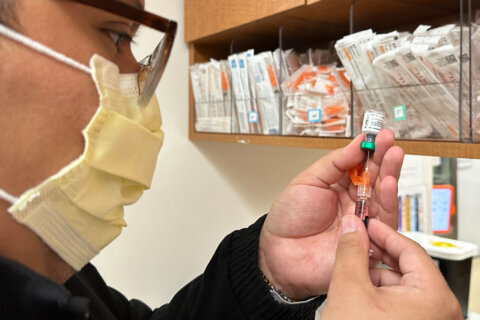WASHINGTON — A small amount of caffeine can do a body good, but Lean Plate Club blogger Sally Squires says too many coffee and tea drinkers could be consuming too much.
Government studies suggest that 150 to 200 milligrams per day of caffeine should be an average target for adults. A cup of tea contains about 50 milligrams and a cup of coffee can contain about 100 milligrams per 8-ounce cup.
But typical coffee and tea drinkers consume far more than just one cup per day and often the cups hold more than 8 ounces, Squires said.
Caffeine can stimulate brain activity and give drinkers more energy. Some studies of green tea suggest it can boost the metabolism and tea in general contains antioxidants and flavonoids that can combat inflammatory conditions like heart disease and arthritis. But too much caffeine can cause insomnia and heart palpitations or in large amounts can lead to bone loss, Squires tells WTOP.
“It is really important to realize what you are drinking and when,” she said.
Ever experience headaches after sleeping in on the weekend? That could be a sign of a caffeine withdrawal. Squires suggests that coffee drinkers try to alternate between regular coffee and decaffeinated coffee to help break that addictive hold.
She also recommends that workers stand up and stretch periodically throughout the day.
“If you walk around the office once, you realize, oh maybe I’m not as tired as I thought. I’ve just been sitting in one place for so such a long time. Maybe, I don’t really need that cup of coffee or cup of tea,” she said.







